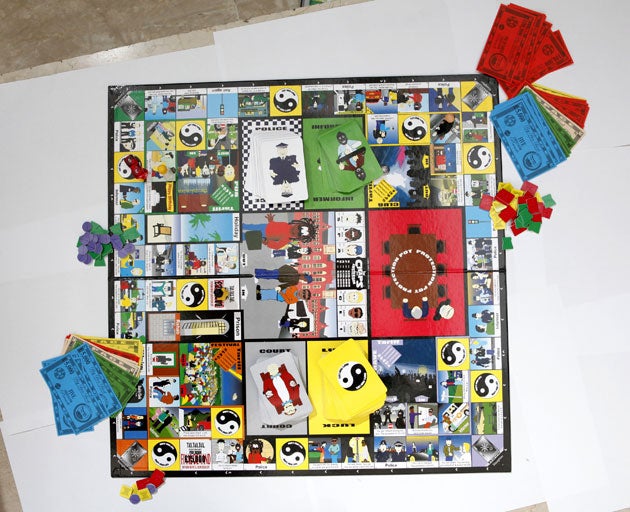Forget Park Lane, I'll buy a bit of puff...
New board game has anti-drugs campaigners up in arms

Your support helps us to tell the story
From reproductive rights to climate change to Big Tech, The Independent is on the ground when the story is developing. Whether it's investigating the financials of Elon Musk's pro-Trump PAC or producing our latest documentary, 'The A Word', which shines a light on the American women fighting for reproductive rights, we know how important it is to parse out the facts from the messaging.
At such a critical moment in US history, we need reporters on the ground. Your donation allows us to keep sending journalists to speak to both sides of the story.
The Independent is trusted by Americans across the entire political spectrum. And unlike many other quality news outlets, we choose not to lock Americans out of our reporting and analysis with paywalls. We believe quality journalism should be available to everyone, paid for by those who can afford it.
Your support makes all the difference.There was a time when board games were wholesome family fun: mum, dad and children around the table, squabbling over whose turn it is and who owes what to whom. But a new game launched in the UK last week has a more sinister aim: make the most cash from dealing drugs without getting caught.
The game, called the Chaps from Amsterdam, is like the evil love child of Monopoly and TV's The Wire. It has enraged anti-drugs campaigners who say it both glamorises and trivialises the trade.
Players become dealers who vie to buy S.P.A.C.E (speed, puff, acid, coke and ecstasy) in Amsterdam for the lowest price and sell it on for the greatest profit.
Instead of Monopoly's Chance cards, there are Police cards, whose forfeits include: "Your bent copper loses the evidence; pay protection £150,000", and, "Your courier is busted for ecstasy; lose all your Es". Other cards detail the actions of informers and the courts.
The game is on sale online directly from its manufacturers and from eBay for £39.99. It was devised by a company called Hard Impact Board Games, who are careful to protect their anonymity. Describing themselves as "a collective of individuals from London aged 30-50", they claim not to have first-hand knowledge of the Dutch drugs scene, although one of the game's inventors is understood to have spent time in prison.
On their website they write: "The Chaps from Amsterdam has been formulated through years of hard work, in bedrooms, front rooms, pubs, clubs, raves, festivals, police cells and prison cells. Trust nobody and never be too flash with your cash as, like in real life, the police, courts and informers are waiting for you around each and every corner!"
Peter Stoker, director of the National Drug Prevention Alliance, said yesterday: "This so-called 'game' is a deeply cynical attempt to make money from a dirty business. They cite the usual get-out clauses about this game just being for 'educational, recreational and historical purposes' and they claim 'no intention to incite the use of controlled or illegal substances'. In fact it's self-evident that it's for money-making purposes, and, if it incites drug use, who are they to care? It's the rest of us who will have to deal with the damage they cause."
Mr Stoker continued: "They give the impression that drug use is a subject you can have fun with – but would you buy a board game about other illegal actions like robbery, or domestic violence, or rape? This game is just as damaging in its own way, and it belongs in the wheelie bin, along with its makers."
Martin Barnes, the chief executive of the charity DrugScope, said: "Games like this certainly don't help people to make informed decisions about drugs, and to some extent they trivialise the significant harms caused by the illegal drug trade."
Hard Impact Board Games denied this: "It's a game and it shows quickly the possible consequences of engaging in this type of activity, such as time in prison or rehab. The game also has some squares that will take you out of the game completely to show the ultimate consequence of drug taking and drug dealing."
Asked whether one of the game's inventors had spent time in prison and whether experience of drugs-related crime had been incorporated in the game, the spokesman declined to comment, saying: "It's just a concept of how things might be in that scenario. At the end of the day, it's a game."
Join our commenting forum
Join thought-provoking conversations, follow other Independent readers and see their replies
0Comments